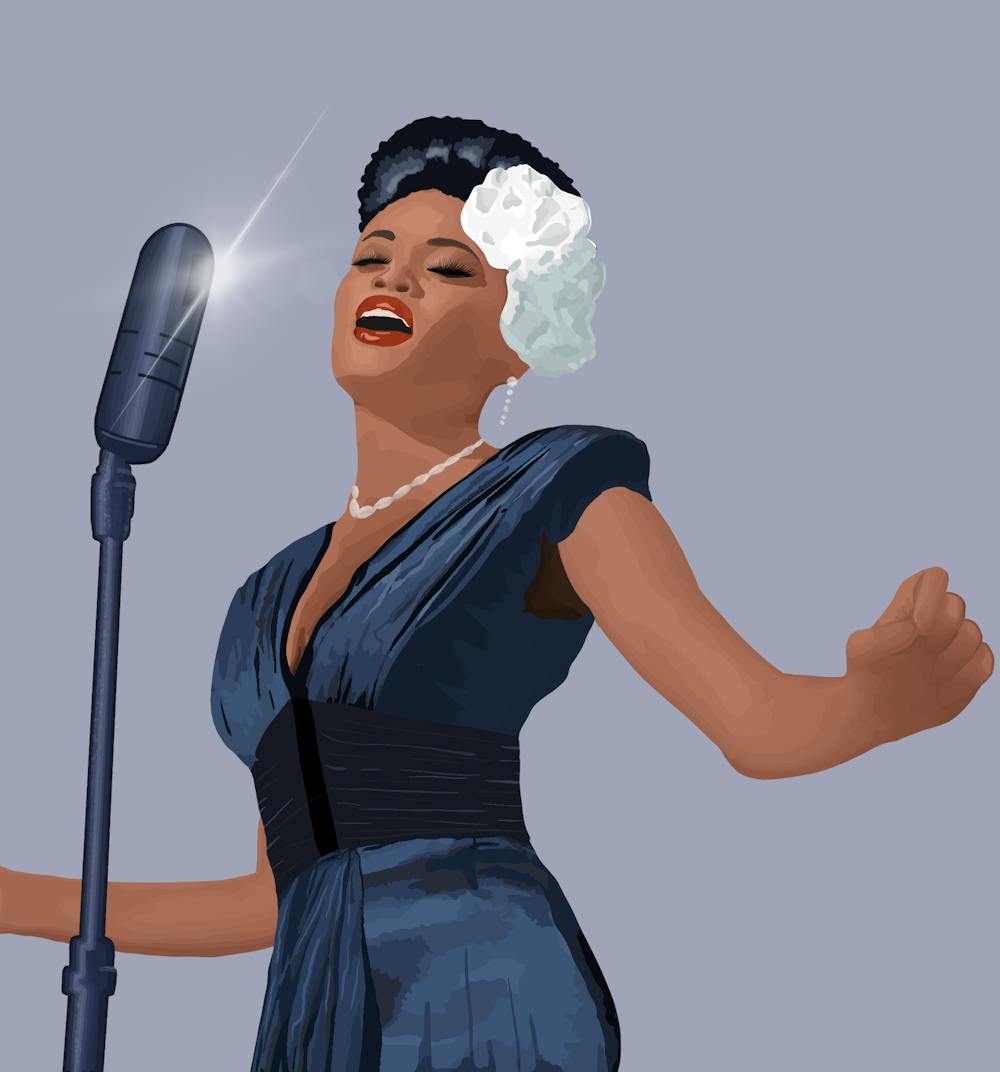Awards season is currently in full swing. Since many films shifted their release schedules because of the COVID-19 pandemic, this year's award season is longer than usual. Due to these changes, award shows have opened their criteria for film submissions to include streaming services, such as Netflix and Hulu, meaning that Hulu's new release, “The United States vs. Billie Holiday,” will be eligible for nominations.
The film focuses on the tragic life of Billie Holiday, a music superstar in the ‘40s and ‘50s, and takes a close look at her famous song “Strange Fruit," which alludes to the lynchings of Black people in the South. The story highlights how the federal government did anything within their means to prevent Holiday from singing “Strange Fruit” at all of her performances — mainly by using her heroin addiction as a source for punishment. It was difficult for the FBI to find legal grounds on which to prosecute her for singing her song, so an informant was hired — FBI Agent Jimmy Fletcher — to find evidence of her heroin usage, which had sent her to jail for one year.
The film begins with Reginald Lord Devine, portrayed by Leslie Jordan, interviewing Holiday. When Devine asks her about “Strange Fruit,” the film flashes back 10 years earlier. From that point on, the audience sees many parts of Holiday’s life — her relationships with men, her drug addiction and the harassment she received from the federal government. Most importantly, the audience understands how all the aspects of her life contributed to creating her music.
With knockout performances from Andra Day and excellent directing by Lee Daniels, writer Suzan-Lori Parks’ expert storytelling of decades of history shines in this stellar film.
Day completely dedicates herself to being almost an exact copy of Billie Holiday. The directors decided to use live singing instead of lip synching, and Day's vocal cadences, mannerisms and accent are the highlights of her performance.
Given that Holiday was a star from long ago, many audiences may not be familiar with her life and career. Many definitely do not know what it was like to see her perform live. So the choice to have Day sing live enhances the film because the audience can experience what it was like to see Holiday performing right in front of them.
Audiences can better understand the pain and sorrow of the character through her singing — which is an effect that often isn’t felt with lip synching. It also helps that Day was able to mirror Holiday’s singing voice. This directorial choice is reminiscent of musical biopics “Ray,” “Bohemian Rhapsody” and “Cadillac Records.”
Day is not the only excellent performance in the film. The supporting cast also does a fantastic job, the best being Tyler James Williams as musician Lester “Prez” Young, Trevante Rhodes as FBI Agent Jimmy Fletcher and Da'Vine Joy Randolph as Holiday’s friend Roslyn. All of these actors marvelously portray their distinctive characters while excellently aiding in telling Holiday's story.
It’s clear that Daniels was able to pull the best aspects of his past projects — which include “Precious,” “The Butler” and “Empire” — to create this film. For “The United States vs. Billie Holiday,” Daniels draws from the tortured character storyline from “Precious,” the historical narrative from “The Butler” and the amazing musical placement and storytelling from “Empire.”
The technical aspects of the film also excel, especially through beautiful lighting, hairstyling and makeup. Since the film takes place during a time many people today did not experience, the amazing set designs and costuming are vital to ensure that audience members can feel immersed in the film and understand what the period was really like. Thanks to Daniels’ direction, the locations come alive in the film — particularly in the scene where Holiday walks from a phone booth in the middle of Times Square on a rainy night.
A film can only be so good without a great screenplay, and luckily screenwriter Parks assembled a cohesive script that keeps the audience engaged for the film’s two-hour run time. By having Holiday sing “Strange Fruit” towards the end, the script builds anticipation for the contents of this mysterious song.
The explanation behind Holiday’s songwriting is subtle, but it works well, as many of the songs she wrote were based on her life experiences. The film even alludes to the fact that Holiday not only felt forced to sing “Strange Fruit” because of the horrific lynchings happening in the South, but also due to her own personal connection to trauma and fear.
Holiday knows she can excel in life without a man, but based on her trauma as a young girl, she feels encapsulated by the power of men. Holiday knows she can stay off drugs, but they help her cope with the pain she has dealt with throughout her life. All she wants is help, but just like Black Americans in the South, no one is willing to give it to her.
This is definitely a must-see film. Whether audiences come for the music, Day’s performance or Daniels’ direction, they won’t be let down. “The United States vs. Billie Holiday” gives audiences the opportunity to witness such an important figure in history as Holiday.







